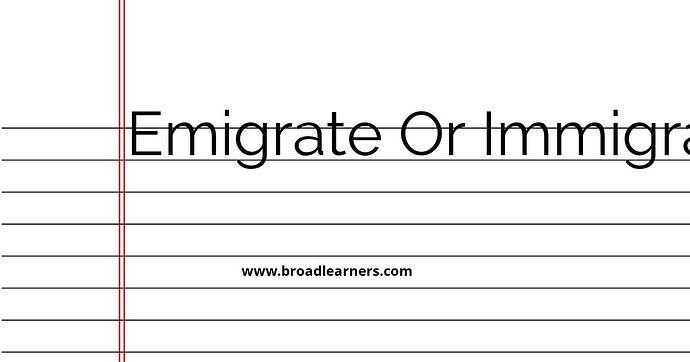'Emigrate' and 'immigrate' are commonly confused words in English grammar. Understanding the difference between 'emigrate' and 'immigrate' is important to use them correctly in written and spoken English.
'Emigrate' is a verb that means to leave one's own country and settle in another. It is used when someone is moving away from their home country.
'Immigrate' is also a verb that means to come to live permanently in a foreign country. It is used when someone is moving into a new country.
Let's take a closer look at the meanings and usage of 'emigrate' and 'immigrate'.
| 'Emigrate' | 'Immigrate' |
|---|---|
| The word 'emigrate' is used to indicate leaving one's own country. | The word 'immigrate' is used to indicate coming to live permanently in a foreign country. |
|
|
To remember the difference between 'emigrate' and 'immigrate', it can be helpful to think of 'emigrate' as exiting or leaving one's own country, while 'immigrate' means entering or coming to live permanently in a foreign country.
Here are some examples of correct usage:
- She decided to emigrate from her home country to start a new life.
- Many people immigrate to the United States in search of better opportunities.
- He emigrated from Russia and then immigrated to Canada.
- My parents emigrated from India and immigrated to the United Kingdom.
Remembering the correct usage of 'emigrate' and 'immigrate' will improve your grammar and communication skills.
